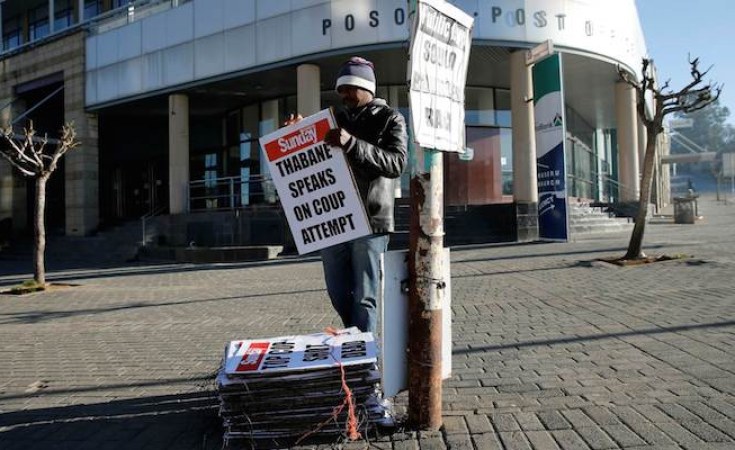A political and security crisis in Lesotho has eased since parties agreed to call early elections next February in a bid to secure a new government with a clear mandate. But one of the root causes of the crisis - the right of legislators to change parties and “cross the floor” in Parliament - remains a source of instability in a country where political power has been spread among a range of different parties. Tšoeu Petlane examines the problem.
Maseru - One reason why Lesotho is in its current political fix is because of floor-crossing: members of Parliament (MPs) leaving the parties that sent them to Parliament and joining others.
Of course, there have been other factors behind the collapse of governance in the kingdom, including a weak coalition of politically incompatible partners as government after the indecisive 2012 general election, and contestation over the appointment of a new army chief in August.
But one of the reasons for delays in implementing various agreements signed by Lesotho's feuding coalition leaders to reopen Parliament has been the threat that floor-crossing poses for Prime Minister Thomas Thabane: that he could be removed from power as a result of MPs scurrying about the aisles and altering the balance of power in the National Assembly.
The party that loses MPs typically bemoans the culprit's disrespect and disregard for voters, and intimates it would want to see “something done” about it. On the other hand, straying MPs often justify their defection on the basis of both untenable conditions in their former party and the contention that their constituents support them. In the end, nothing is done about it - until there is an uproar the next time it happens.
So, with Parliament now reconvened, what will be, firstly, the possibilities of floor crossing between now and December, when Parliament is scheduled to dissolve, and secondly, its success in passing legislation to curb the practice? A more fundamental question is: why would Lesotho's MPs either impose a moratorium on floor crossing between October and December, or legislate against it in the long term?
Lesotho's current electoral model allows for two groups of National Assembly seats: constituency seats in which the single candidate who receives the most votes wins the seat (also called a “simple plurality” or first-past-the-post system) and party seats filled according to each party's share of the popular vote nationally. Only constituency MPs have the right to defect in Parliament, and therefore any debate on floor crossing revolves round this group, who make up two-thirds of the house (80 of 120).
Despite the public outcry against crossing the floor when it happens, and the disruptive affects it has had on national politics and governance this year, it appears that given the chance and choice, MPs would want to retain this right. There are several reasons for this.
First, many MPs believe it is their right to make decisions about supporting and remaining in political parties beyond elections - just as it is the right of every citizen, whether elected or not. So this is a fundamental constitutional matter that, if limited or curtailed, would erode their freedom of choice, association, expression and conscience.
Taking this fundamentalist stance limits the possibilities of curbing floor-crossing.
Second, in the absence of legal restriction, the pacts and codes that political parties compel their MPs to sign remain unenforceable - as do calls from voters for either a recall or a fresh mandate. Whether moral suasion would be strong enough to bring about a moratorium remains doubtful, especially with no strong movement towards legislating against it yet.
Third, the historical experience and perceived power that the option of floor crossing places in the hands of MPs are strong incentives to keep the practice. The first floor crossing cases of the 1960s put Prime Minister Leabua Jonathan's hold on state power on a secure footing after he had won a narrow two-seat majority in the pre-independence poll of 1965. Thirty years later, a whole new government emerged from within Parliament when the majority of MPs from the Basutoland Congress Party crossed the floor to found the Lesotho Congress for Democracy (LCD) in 1997. In 2012, the Democratic Congress (DC), the single biggest party in the current Parliament, was formed when MPs left the LCD. Curbing floor crossing would deny MPs this power.
No less than half of the 10 parties in the current Parliament are direct products of floor-crossing - including the three biggest current parties: the DC, the LCD and the All Basotho Convention of Prime Minister Thabane.
In short, none of the existing power brokers in Lesotho's Parliament and government would exist if floor crossing was banned, and it is doubtful they will opt to outlaw this practice: it would be against their interests. So floor-crossing appears likely to be retained in Lesotho, now and in the foreseeable future. But where is the voice of the voter in all this?
Tšoeu Petlane is director of the Transformation Resource Centre in Maseru.


